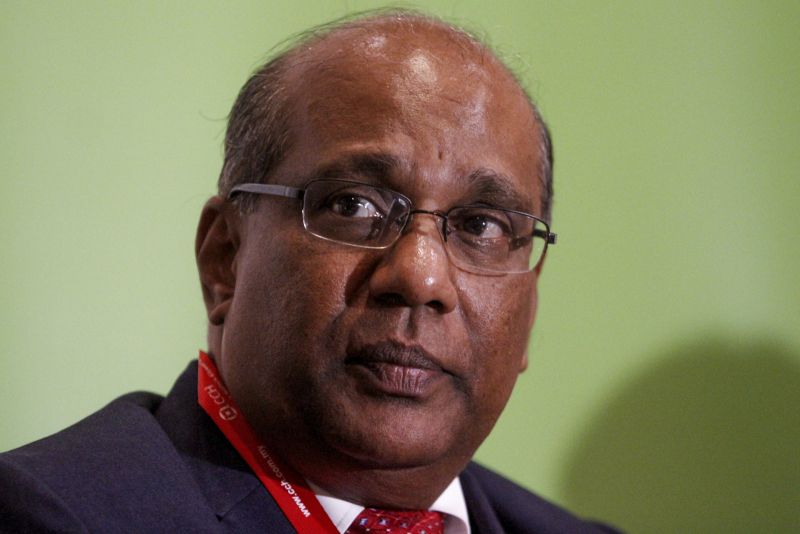 The goods and services tax introduced in April last year is a success, says the Customs Department.The unpopular goods and service tax (GST) has been declared a success by the Customs Department, which hopes to exceed its first year collection target of RM27 billion.
The goods and services tax introduced in April last year is a success, says the Customs Department.The unpopular goods and service tax (GST) has been declared a success by the Customs Department, which hopes to exceed its first year collection target of RM27 billion.
Customs deputy director-general Datuk Subromaniam Tholasy said it has “slightly” exceeded its 2015 target but the total amount collected will be announced by the prime minister.
Subromaniam said the department is also expected to achieve a GST collection target of RM39 billion for 2016 based on its success in 2015.
Two big reasons for the higher collection he said were the higher number of firms that have registered for GST implementation and the number of businesses in the “hidden market” which have registered, he said.
In 2015, an extra 100,000 businesses registered with Customs for GST, he said.
 Customs deputy director-general Datuk Subromaniam Tholasy says the goods and service tax is poised to exceed its first year collection target. – The Malaysian Insider pic by Seth Akmal, March 10, 2016.“About 300,000 businesses which have never had any tax files have registered with the department,” said Subromaniam, alluding to companies which in the past have never paid income tax.
Customs deputy director-general Datuk Subromaniam Tholasy says the goods and service tax is poised to exceed its first year collection target. – The Malaysian Insider pic by Seth Akmal, March 10, 2016.“About 300,000 businesses which have never had any tax files have registered with the department,” said Subromaniam, alluding to companies which in the past have never paid income tax.
On GST's first year, Subromaniam said most of the teething problems had been ironed out.
For instance, in the first month of GST, the department only managed to pay 14% of GST refund claims from companies within 14 days.
"At the end of the year, the rate has been increased to 70%," Subromaniam told reporters on the sidelines of a GST seminar by audit and tax advisory firm Grant Thorton.
 In comparison, said Grant Thorton senior official Lorraine Parkin (pic, left), the refund rate in the United Kingdom for its GST-equivalent tax was six weeks after a claim is filed.
In comparison, said Grant Thorton senior official Lorraine Parkin (pic, left), the refund rate in the United Kingdom for its GST-equivalent tax was six weeks after a claim is filed.
"In other parts of Europe it can take months to get a refund. So Malaysia’s refund rate is very aggressive," said Parkin, who is Grant Thorton's head of indirect tax, Asia Pacific.
She said research by the International Monetary Fund (IMF) showed that GST helped a country’s growth by taxing consumption and rather than income and corporate earnings.
Subromaniam claimed that Malaysia’s successes in GST implementation were acknowledged by IMF and was now a model for Middle-Eastern countries.
"Many Middle Eastern countries are actively looking at consumption taxes as income from oil revenue goes down. So they are being told that they should look at Malaysia as an example." – March 10, 2016.

Comments
Please refrain from nicknames or comments of a racist, sexist, personal, vulgar or derogatory nature, or you may risk being blocked from commenting in our website. We encourage commenters to use their real names as their username. As comments are moderated, they may not appear immediately or even on the same day you posted them. We also reserve the right to delete off-topic comments